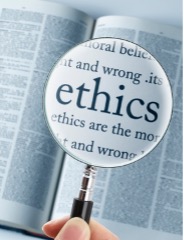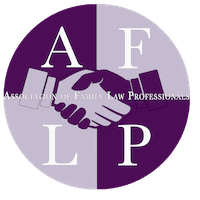Written by Julia Corbin, MS, LMFT
Most mental-health professionals don’t receive specialized training in family-law matters in graduate school. With little-to-no roadmap, when new professionals find themselves involved in a family-law case, they often feel uncertain and unsure of where their boundaries lie. Add attorneys who are practicing — ahem — zealous advocacy for their client’s wishes, and it’s no surprise that many MHP’s run screaming for the hills when the word “court” is mentioned.
 To which we say, “Good!” An ethical professional recognizes when they need to seek peer consultation, additional training, or simply decline a case where they lack specialized knowledge.
To which we say, “Good!” An ethical professional recognizes when they need to seek peer consultation, additional training, or simply decline a case where they lack specialized knowledge.
But what if there were a roadmap?
The Association of Family and Conciliation Courts published Guidelines for Court- Involved Therapy in 2010.[1]
Just to hit the highlights:
- The guidelines recognize that sometimes professionals end up involved in court through the normal course of therapy, e. a woman comes to counseling to improve her communication in an unhappy marriage, and ultimately decides that she wants a divorce. They differentiate this level of involvement from a court-appointed therapist, who accepts an appointment from the court in advance of starting therapy.
- In bold print, the guidelines advise that “the court-involved therapist should avoid serving simultaneously in multiple roles, particularly if these create a conflict of For example, the court-involved therapist should not serve simultaneously as therapist and evaluator or as therapist and friend.”
-In fact, there is a separate set of AFCC guidelines for Parenting Plan Evaluations.
- We read this bold print to also suggest that MHP’s should not be treating both a parent and a child in a court-involved
- Mental-health professionals should be mindful of “the impact of his/her natural working alliance with the client,” which can lead the court-involved MHP to align with their client and attempt to become an advocate or forensic expert to influence the outcome of the The guidelines advise against crossing these roles, and to “resist pressure from anyone” to provide services beyond the therapeutic role.
- When acting as a therapist, the only appropriate role is to promote your client’s successful psychological functioning as they move through the divorce and legal When treating children, MHP’s should be aware that sometimes parents seek therapy for their child not to promote the child’s adjustment to the divorce but to try to gain standing in the court case. They should use a very clear informed consent process to squash this expectation.
- If they are in court, a MHP who is qualified as a treating expert can only provide testimony directly relevant to the treatment role, which includes expert opinion regarding their client’s psychological functioning over time, treatment progress, relationship dynamics, coping skills, co-parenting progress and need for further treatment.
- As court-involved therapists, they lack the information base to make legal recommendations regarding parenting plans, because, again, therapists and evaluators can’t cross roles in the same
- A court-involved therapist has the responsibility to maintain current knowledge in the following specialized areas:
- Characteristics of divorcing/separated families and children
- Family systems and other systems in which court-involved families interact
- The impact of high interparental conflict on post-separation parenting arrangements
- Effective interventions with divorcing or separated families
- Adaptations of traditional therapeutic approaches that may be necessary to work with divorcing or separated families
- Ethical issues and applicable local legal
So, great. Now we all know where to look for guidance in how MHP’s should approach court-involved roles. These cases are complex and emotionally demanding, though, and just reading the guidelines isn’t enough.
What else can we do?
Join professional organizations! It’s a great way to get to know other MHP’s so you can reach out for consultation[1] in difficult cases. (And let’s be honest, sometimes it feels like they’re all difficult). It keeps you informed about continuing-education opportunities so you can be current in your practice.
Locally to Southwest Florida, the Association of Family Law Professionals offers regular luncheons and a one-day Annual Seminar every September.
Statewide and nationally, the Association of Family and Conciliation Courts, which also has a Florida chapter, offers conferences, webinars, and lots of online resources, including the Family Court Review journal and plenty of practice guidelines.
You do not have to be an attorney to attend the offerings for the Family Court section of the Lee County Bar Association. Family law is a challenging niche field where a new MHP can often feel like they are operating without a map. Fortunately, there are guidelines and a network of professional colleagues to help find the way. An ethical professional uses these resources so they can be truly helpful to their clients in the midst of what is likely the most difficult time of their lives.
[1] https://www.afccnet.org/Portals/0/PDF/Guidelines for Court Involved Therapy AFCC.pdf?ver=njNe7TWOMEqpQS7IMOfElg==, or under the Practice Guidelines and Standards tab on www.afccnet.org.
[1] Consultation is when MHP’s discuss a case without identifying information, to plan treatment, navigate ethical dilemmas, and share best-practices.
